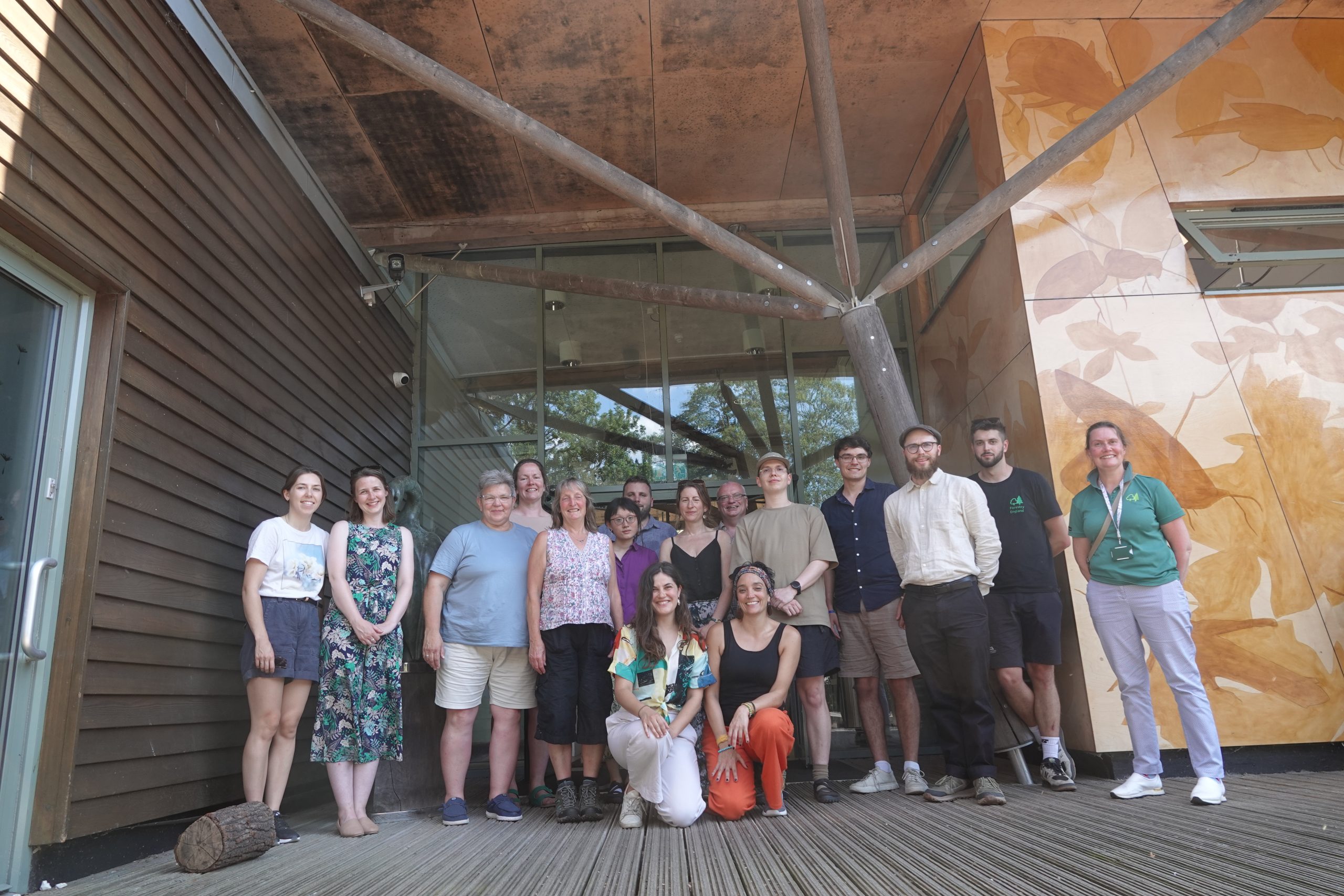2025 Annual UK IPSN Network Meeting
-
Country
UK -
Programme
International Plant Sentinel Network -
Type
News -
Source
BGCI
News Published: 4 July 2025
On Monday, 30 June 2025, UK-based members and partners of the International Plant Sentinel Network (IPSN) gathered in person for the 2025 Annual UK IPSN Network Meeting, held in Hyde Park, London, and kindly hosted by The Royal Parks.
The day provided a valuable opportunity for participants to network and learn more about UK-based initiatives as well as gain further understanding about different biosecurity and plant health topics thanks to engaging session provided by our facilitators from Forest Research, RBG Edinburgh, Tree Health Centre @ Yorkshire Arboretum, Fera Ltd and Royal Parks.
The day included presentations on:
- Recent updates on IPSN resources and ongoing UK based initiatives.
- Results from the 2024–2025 IPSN Small Grants Projects and the launch of the new funding call for 2025-26.
- Background and introduction to new and on-going UK-based monitoring and sampling projects, run in collaboration with FERA and Forest Research.
- An overview of Hyde Park, with special emphasis on plant health monitoring and management strategies.
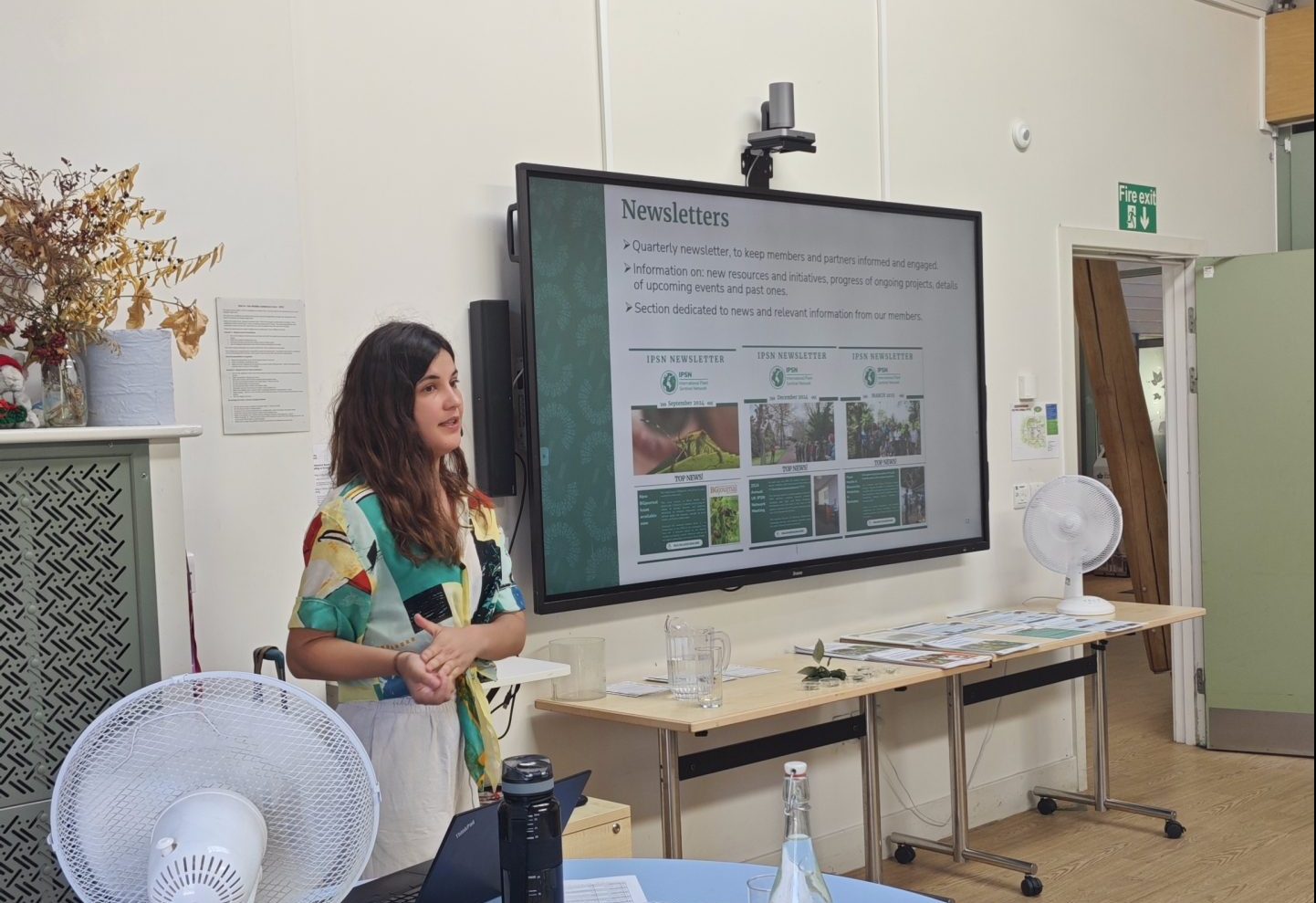
KEY TAKE AWAY MESSAGES FROM THE MEETING
IPSN Small Grants
As part of the IPSN’s commitment to supporting practical, UK based plant health initiatives, the Small Grants programme was established to support IPSN members based in the UK to develop and carry out innovative short project ideas that promote the use of living collections to help inform, develop and improve monitoring strategies and biosecurity practices.
During the meeting, two presentations on last year’s IPSN Small Grant projects showcased the impact that this small-scale funding initiative:
- Ginette Alexander at the Tree Health Centre, Yorkshire Arboretum shared the suite of posters and signage developed to help support best biosecurity practices and help engage both staff and visitors. All the posters are freely available for use in botanic gardens and arboreta: Access them here.
- James Douglass at Royal Botanic Garden Edinburgh, in collaboration with RBGE students Elinor Dunlap and Jakub Dobes, explored the outcomes of their study on the different methods of monitoring and recording plant health in UK living collections. Their work identified barriers to data sharing and offered recommendations for improving plant health data management.

A key highlight of the meeting was the launch of the IPSN Small Grants Call for 2025–2026, now open to staff and students based at IPSN-affiliated gardens and arboreta in the UK. The session encouraged brainstorming, exchange of ideas, and discussions around potential collaborative projects. The call for concept notes is now open until Monday 21 July. For more details or to apply, please contact: lara.salido@bgci.org; Itxaso.quintana@bgci.or
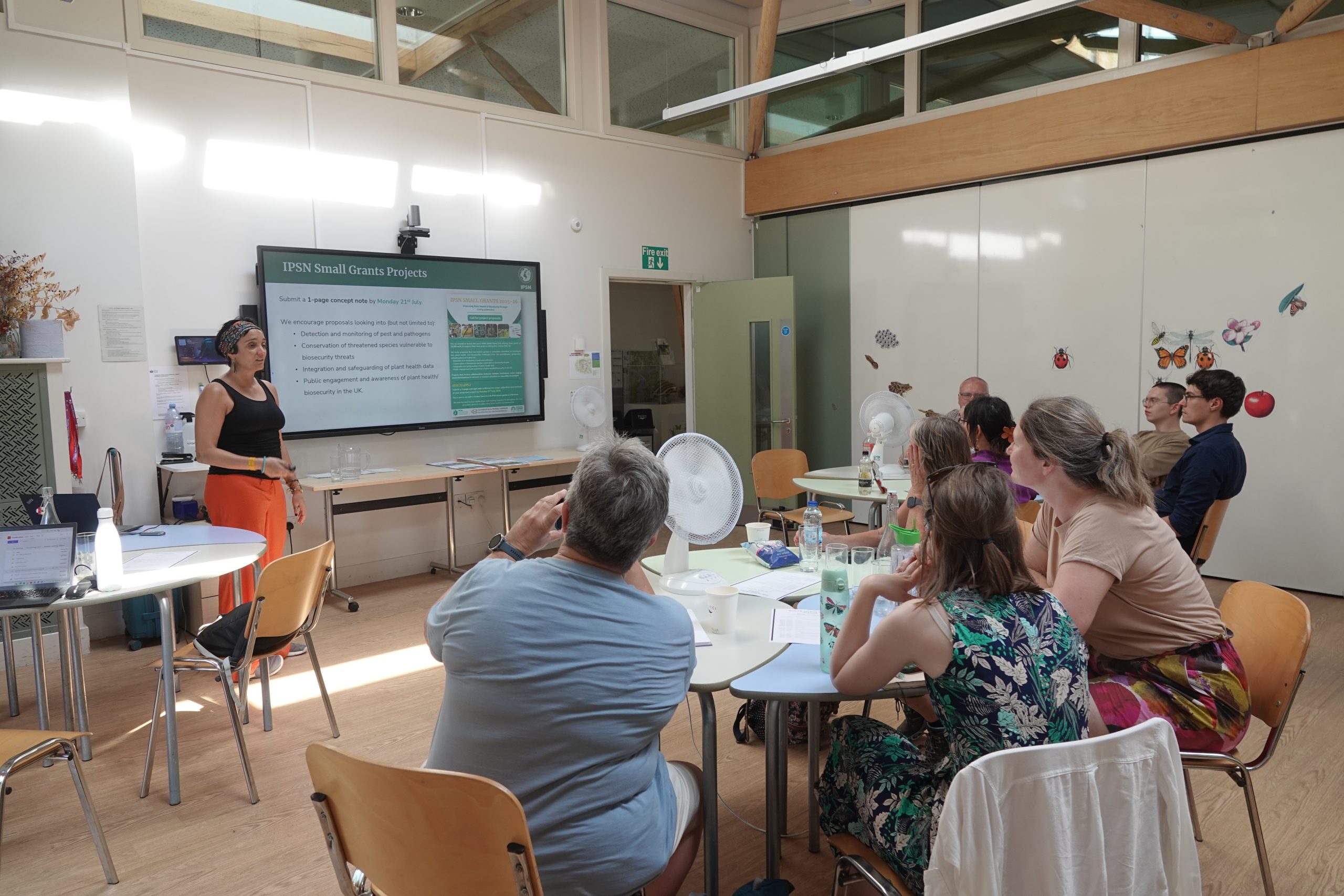
UK-based sampling/monitoring activities
Additionally, as part of the IPSN’s ongoing efforts to support early detection and surveillance of emerging plant health threats, the meeting also marked the launch of two new UK initiatives aim at sampling and monitoring key target organisms of interest. These activities are being carried out in collaboration with partner research organisations (Forest Research/Fera Ltd) and are open to participation from UK-based botanic gardens, arboreta, and plant collection organisations.
Standardised protocols and sampling materials are available upon request, and we warmly invite interested individuals and institutions to take part in the following initiatives:
- Holm Oak Pest Monitoring: Join the monitoring of pests affecting holm oak (Quercus ilex) to help establish a baseline of presence and distribution of these organisms in the UK territory.
- Hawthorn Sampling: Undertake sampling of symptomatic hawthorns in their collections to help detecting the spread of key threats to hedgerow resilience such as fireblight (Erwinia amylovora), rusts, and viruses currently impacting Crataegus species across the UK.
- Canker Stain of Plane: Participate in the establishment of a trapping network to help with efforts to detect the arrival of Canker Stain of Plane (Ceratocystis platani) using passive spore traps.
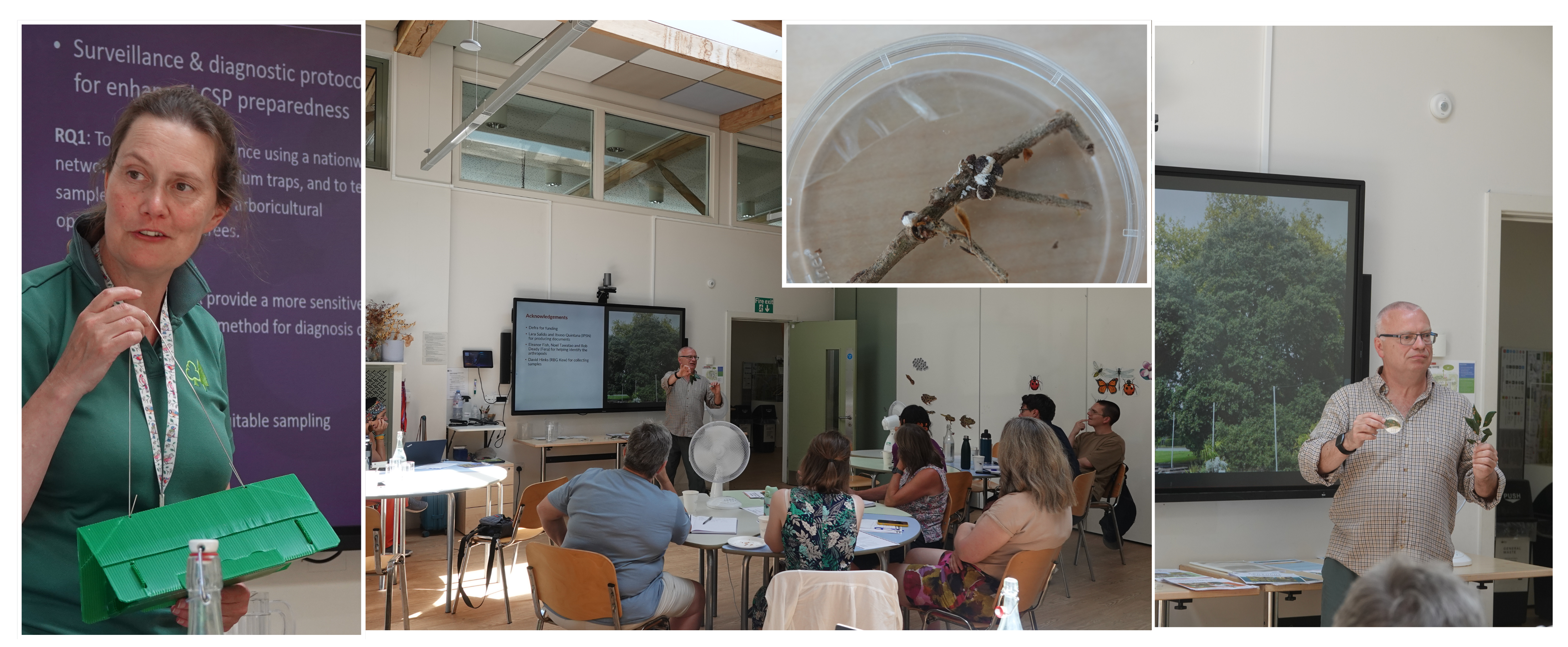
These initiatives aim to strengthen early detection of plant health threats across UK landscapes as well as supporting the development of monitoring skills and key plant health issues in botanic gardens and arboreta within the UK. If you are based in the UK and would like to get involved, please fill in this form to express your interest and get more information:
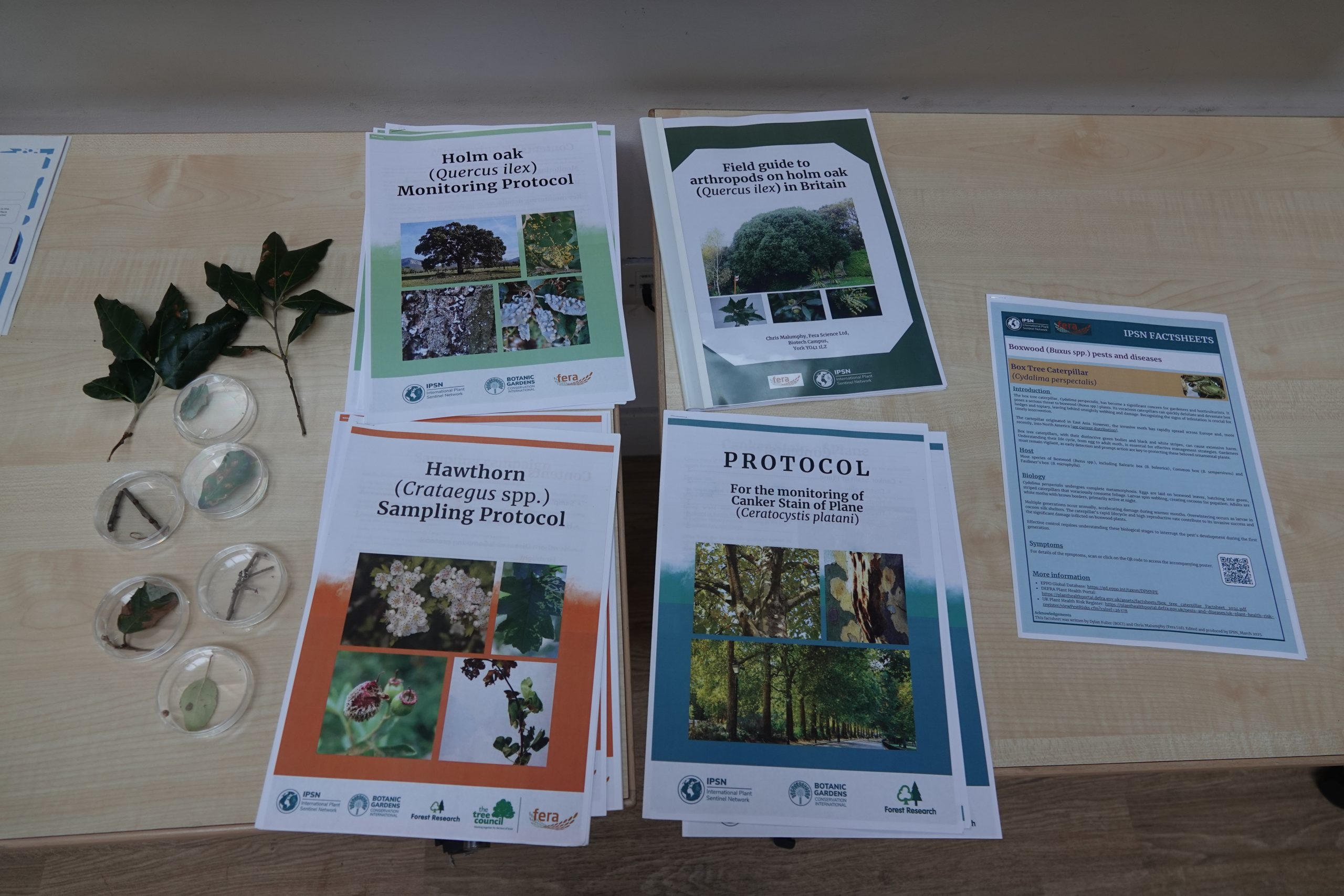
Field Session at Hyde Park
The meeting also provided valuable insight on the history, key challenges and plant health issues affecting Hyde Peak. With the key pressures and challenges being associated its extreme visitor and the most frequently encountered issues associated with the presence of Massaria affecting Plane trees, Oak Processionary Moth, leaf miners and mildew.

As part of the practical section of the meeting, and taking advantage of the summer weather, the day concluded with a guided tour of Hyde Park lead by Greg Packman where attendees explored the park’s diverse collection of trees, focusing on current plant health threats. Supported by our expert facilitators, participants were guided through different pest and disease identification, receiving key training for the discussed sampling and monitoring activities.
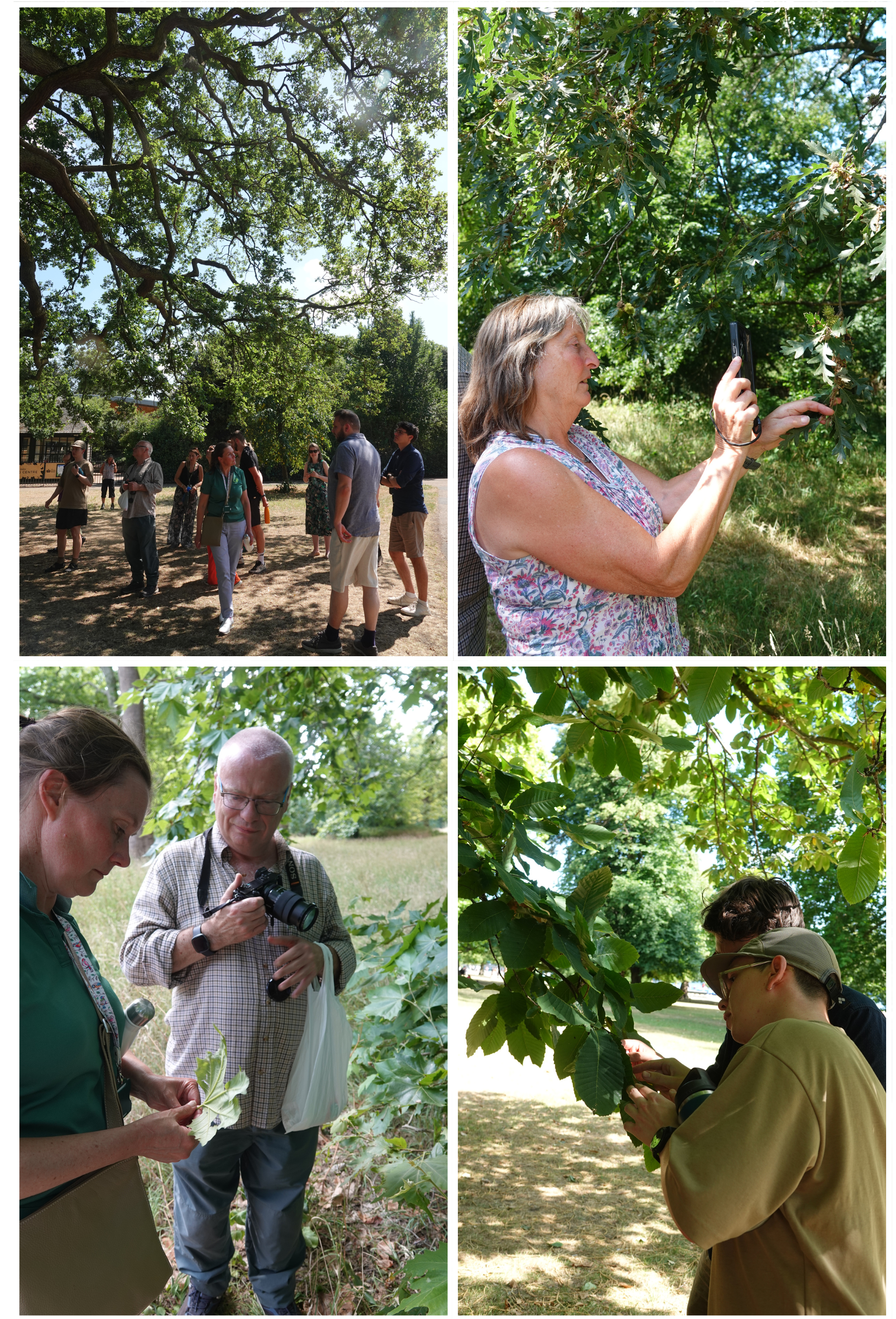
We extend our heartfelt thanks to all facilitators and participants for their enthusiasm, collaboration, and continued dedication to plant health.
Want to Join the IPSN?
Membership is free! By joining, you gain access to expert-led initiatives, resources on biosecurity and plant health monitoring, and a global network of professionals.
To get involved, email: lara.salido@bgci.org or itxaso.quintana@bgci.org
